Chapter 1 of The world of Jews in Ryazan: Beyond the Pale, is here.
A skilled shingle-maker. A soldier. A dress shop assistant. A 21-year-old engineeer at a Ryazan factory (my own grandfather).
These were all Jewish Ryazan-dwellers, and I explore their lives in these blog posts. They were each ancestors of present-day Ryazan JewishGen participants now seeking information about them.
Another family in this group of 19th-20th century Ryazan Jews included some of the wealthiest, most influential magnates in Russia. These were the Polyakov family, one of whom was among the very few Jewish Russians permitted into the top ranks of the hereditary nobility. This generation of the Polyakov family included the spectacularly prominent trio of brothers: Samuel, Yakov, and Lazar.
Efraim Polyakov, probably the son of one of these brothers, founded an agricultural equipment factory in Ryazan in the late 1880s. Efraim’s great-granddaughter (a fellow Ryazan JewishGener) and I had initially hoped to find that my grandfather, Boris Bobroff, had worked for him. It would have been a fun connection between us.
Having done further research, though, I’ve since discovered my grandfather worked at another similar factory at a later time. But there may possibly have been a connection between the two factories through the aforementioned very powerful generation of Polyakovs.
A generation of legendary Polyakov brothers
The three legendary Polyakov brothers, Samuel, Yakov, and Lazar, had grown up in the Pale of Jewish Settlement. But each overcame tsarist restrictions applied to most Jews and moved eastward out of the Pale.
In particular, Ryazan became one of the first stepping stones in the dazzling rise of Lazar Polyakov.
Lazar’s brilliant older brother Samuel (left) had become one of the primary builders of railroads in Russia during the era of explosive railway development in the 2nd half of the 19th century.
Lazar, after graduating from synagogue high school in 1860, began working with Samuel on the Kursk-Kharkov railway line. (Lazar also benefited from the help of middle brother Yakov, who had moved to Taganrog, near the Black Sea, becoming a banker and Merchant of the First Guild.)
Lazar Polyakov’s fabulous rise
Lazar first became active in Ryazan in the 1860s. Having decided to move into the timber industry, he found partners among Ryazan’s timber merchants. He also became involved in Ryazan’s charitable institutions, in particular the orphanage. This, notes the Russian Jewish Resource website, helped him win the favor of the Empress, who highly valued charitable activity. That in turn advanced his application for awards and titles (note the medals in his photo above).
Between 1870 and 1873, Lazar Polyakov founded three banks, in Ryazan, Moscow, and Orel. To the left is a photo of Polyakov’s Ryazan Commercial Bank on Astrakhanskaya Street in Ryazan.
Some of the complex history of this bank and its somewhat incestuous relationship – legal under Russian law at the time – with the Government Bank of Ryazan is told on several Russian language websites, including here and here.
As Lazar’s fabulous ascent continued, in 1891 this Ryazan bank became one branch of his Moscow International Commercial Bank, the largest commercial bank in Moscow by the beginning of the 20th century. Lazar became active in international affairs, and a member of the Tsar’s Privy Council.
Imagining the bank’s impact on our humbler Jewish Ryazan residents
Location of Lazar Polyakov's bank, Astrakhanskaya Street. In this view, another bank, the Nobles and Peasants Bank is on right.
How might this bank, with its nationally-honored Jewish owner, have affected the world of our little band of Ryazan JewishGen ancestors: the shingle-maker, the soldier, the dress shop assistant, and the young factory engineer? Would their employers have transacted banking affairs there? Might dress shop assistant Yakov Kull have deposited receipts there?
Our shingle-maker, Avrom Mesigal, lived in a village near Ryazan beginning around 1875, under the protection of a well-to-do non-Jewish dairy owner. We don’t know how often Mesigal or his family came into the city of Ryazan, or whether his protector might have had banking business there. But like Lazar Polyakov, Mesigal was also involved in buying up timber around Ryazan in the 1870s.
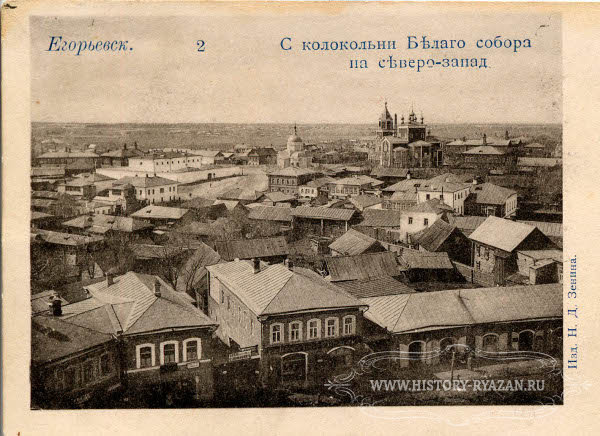
Photographs taken from church bell towers reveal wooden roofs in towns in Ryazan province. Shingles were replacing thatch as the roofing of choice in late 19th century Russia
Mesigal and his protector would buy up a forest, cut down the trees, dry the wood, and craft hand-made shingles from it. Mesigal prospered in this business, living in a large house with his family of seven children. It’s interesting to wonder what Mesigal’s awareness and opinion of Polyakov’s timber business would have been.
Psychologically, how might the fame and success of the Jewish owner of their local bank have impacted members of Ryazan’s Jewish community? Would it have made them feel they, too, might overcome at least some of the anti-Semitic restrictions in their lives?
The Polyakovs’ impact on Russian Jews
According to one assessment today, it’s hard for us now to conceive of how widely-known and discussed the Polyakovs were during their lifetimes, in particular Lazar.
“A hundred years ago, this name thundered around Russia more powerfully than the names Berezovsky and Gusinsky do today. The Polyakovs were adored. The Polyakovs were hated and despised. The Polyakovs were feared. “The Polyakovs have bought up all of Russia.” “The Polyakovs are the hope of Russia.” “The Polyakovs are the shame of Russia.” All conversations of the end of the 19th century and beginning of the 20th sooner or later, one way or another, came back to the Brothers Polyakov…. And above all to the youngest of the brothers, His Excellency Lazar Solomonovich Polyakov, “the Moscow Rothschild,” as he was called in Russia and abroad at the turn of the century. [He was] the greatest Russian banker, next to whom all others since then look like look like young sheep next to a pure-bred bull.”
Even Jewish weddings of the time often took note of Lazar. It was said,
“Lazar Polyakov’s name is retold in fairy tales across the Pale of Settlement. Our poorer brethren, blessing themselves on their wedding days, say ‘Let G-d make you equal to Polyakov.'”
Polyakov is also generally believed to have been the inspiration for Bolgarinov, a character in Tolstoy’s Anna Karenina to whom Anna’s brother Oblonsky, an impoverished aristocrat, had to go for help after selling off most of his estate.
Even today, awareness of Lazar Polyakov’s power and wealth are alive. For example, a 2007 newspaper article called “Young Muscovites Find Community in High-Speed Scavenger Hunts,” described a Jewish youth club’s midnight car races. One of their first high-speed scavenger hunts through Moscow streets, “called ‘On the Road to Riches,’ covered places related to the life of famous banker Lazar Polyakov (1842-1914).”
If Russian Jewish youth today are still racing to follow the footsteps of Polyakov, we can only imagine that Jews of his time were equally fascinated.
Crisis at Polyakov’s banks
Polyakov’s career of course had its difficulties. In 1900, Russia went into a major banking crisis, perhaps on the order of the one we’re experiencing in the US today. The largest banks of Russia began to collapse. One after another, stock companies, trading and banking houses failed. Polyakov’s banks, however, were deemed too big to fail by the tsarist Minister of Finance, who declared,
“suspension of payments by [Polyakov’s] banks would not only ruin many investors scattered across Russia, but would also deal a severe blow to all private credit, undermining the already shaky confidence in private banks.”
So the government restructured Polyakov’s banks. Although he lost much of his fortune, he apparently continued to live a lavish lifestyle. (Does all this sound very familiar?) He was awarded the highly coveted title of Baron at the end of his life, and died in 1914.
Impact of the crisis on Efraim Polyakov’s agricultural machinery factory
It was in these machinations to save the Polyakov banking empire that my intensive search for information about the Efraim Polyakov’s agricultural equipment factory finally found fruit. You may recall that Efraim – probably a son or nephew of Lazar – began this factory in the 1880s. (Not surprisingly, it’s much easier to find information about the magnate than about the provincial factory owner.)
The Joint Stock Company of the Ryazan Agricultural Machinery Factory, according to a Russian language website of essays about banking, was founded in 1889 “with the assistance of” Lazar Polyakov. The factory was hit hard by the banking crisis – perhaps in a way analogous to US employers during our banking calamity today. By 1904, Lazar Polyakov had designated a new factory administration (whether this affected Efraim, the article doesn’t say). This new factory administration was unsuccessful in righting the situation. They finally recommended the factory be closed.
“[Polyakov’s] Moscow International Commercial Bank, however, did not take this extreme measure. To avoid loss of the bill of debt that would have resulted from closing the factory, they decided on further funding, dispersing another 200,000 rubles to the company. In 1905, an extreme shortfall in the bank’s own position forced it to suspend the loan. In 1908, the Ryazan factory had debts of 680,000 rubles.”
It’s a shame that – at least thus far in my search – the historical record seems to describe only the misfortunes of this factory, not the heyday it must have enjoyed for fifteen years before that. I will continue my hunt for more information about happier days at the Joint Stock Company of the Ryazan Agricultural Machinery Factory.
Meanwhile, a couple of small details about Efraim Polyakov’s factory really caught my eye. Its name was almost identical to that of Yekhiel Levontin’s factory, where my grandfather worked: The Joint Stock Company of the Ryazan Agricultural Machinery and Railroad Equipment Factory. And it was founded in 1904-5, at the same time Polyakov was trying to rescue his family’s factory.
It’s certainly possible that two factories in the same small city had nearly the same name. But it makes me wonder whether there might have been some connection or other between the two factories, especially because one was founded at the same time the other one was going under.
Is it possible that Lazar Polyakov might have backed Levontin’s factory, hedging his bets? The new factory was small, occupying two already-existing wooden buildings and employing only six people. Presumably it wouldn’t have taken much capital to start up (it eventually became much larger, and exists to this day). Was Polyakov seeking to shift the name to a new entity? Branching out into railway equipment for greater business stability?
On the other hand, if there was no such connection of Polyakov to the new factory, were Levontin and his backers poaching on the former glory of all things Polyakov? Did they give their factory nearly the same name in hopes of achieving similar glory?
This is all utter speculation on my part, and I am no business whiz. But it’s this kind of speculation and curiosity that fuels my relentless detective work. I’ll be exploring all possibilities in my research to come.
Even the Tsar’s Privy Councilor faced anti-Semitism
A final note: Lazar Polyakov’s success of course by no means erased anti-Semitism in Russia. Anti-Semitism certainly affected Polyakov himself. For example, soon after he had finally managed to build a synagogue in Moscow, following a long struggle for permission, the government suddenly adopted a policy of expelling thousands of Jews from Moscow. The synagogue was unable to be used for many years.
It should also be noted that the honor of being the basis for a Tolstoy character, Bolgarinov, in Anna Karenina is grossly tainted by the fact that the emotional impact of this episode in the book depends on deeply-ingrained Russian anti-Semitism. The embarrassment of Oblonsky’s financial difficulty is intensified by the fact that he must turn for help to a Jewish banker. Bolgarinov makes Oblonsky wait for a long time before meeting with him. “He, Prince Oblonsky, a descendant of Rurik, was waiting two hours in a Jew’s waiting room….” Oblonsky tries to make up puns relating to “the Jew” in an effort to dispel his discomfort at this supposed indignity.












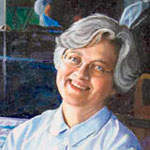







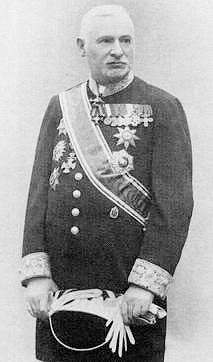
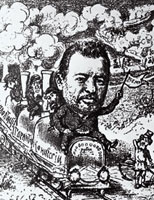
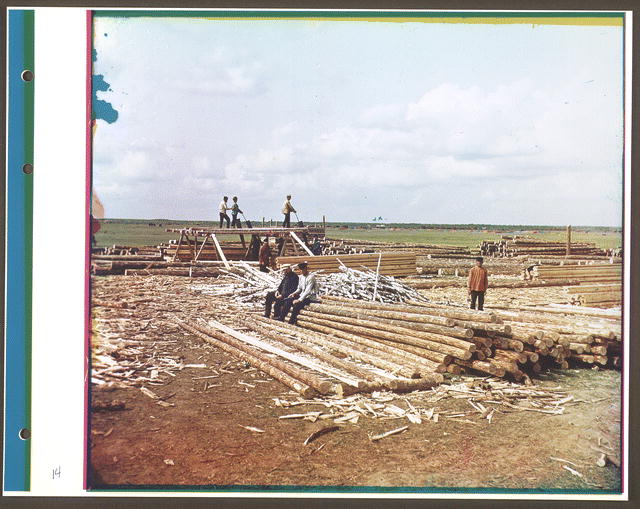
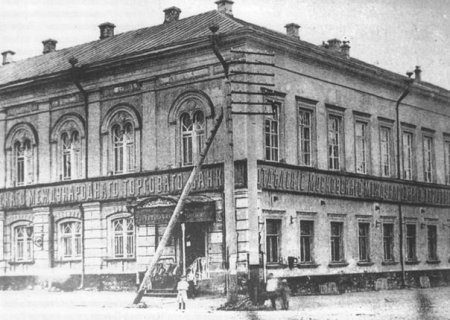
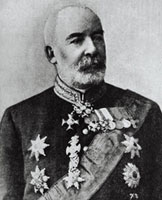
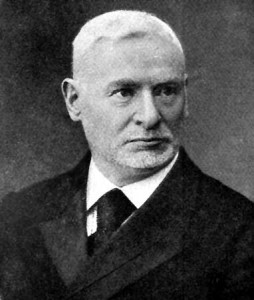
It’s an amazing piece of writing in favor of all the onlineusers; they will get benefit from it I am sure.
Please tell me more about this
montebello apartments apartments for rent in aurora co aqua apartments
lamotrigine cost lamotrigine 200mg brand buy retin cream generic
affordable essay writing – best writing essay essay helper online
Very interesting points you have noted, appreciate it for posting. “History is a cyclic poem written by Time upon the memories of man.” by Percy Bysshe Shelley.
paper back writer write an essay essaywritingservices
ivermectin topical – ivermectin online ivermectin rx
ivermectin for humans amazon The 2004 final HIPAA portability regulations included a definition of genetic information
It as difficult to It as difficult to find knowledgeable folks with this topic, however you sound like do you know what you are dealing with! Thanks
I am so grateful for your blog. Great.
Muchos Gracias for your blog article.Much thanks again. Great.
Thank you for writing this article. I appreciate the subject too.
What is it about? I have some questions dude.
Really informative blog.Really thank you! Really Cool.
Do you have a spam issue on this blog; I also am a blogger,and I was wanting to know your situation; manyof us have created some nice methods and we are looking toexchange methods with others, why not shoot me an email if interested.
Please provide me with additional details on that. I need to learn more about it.
tadalafil 10mg cheap order avana 100mg sale buy diclofenac 50mg pill
https://cheapestedpills.shop/# men’s ed pills
I really enjoyed reading your post and it helped me a lot
Thank you for your post. I really enjoyed reading it, especially because it addressed my issue. It helped me a lot and I hope it will help others too.
Hello there There. I discovered your blog utilizing msn. That is a rather well penned post. I’ll Ensure that you bookmark it and return to examine much more of your beneficial information. Thanks with the write-up. I’ll undoubtedly comeback.
Hey, thanks for the blog.
accutane sale amoxil 250mg pills buy azithromycin 500mg sale
The articles you write help me a lot and I like the topic
Your articles are extremely helpful to me. May I ask for more information?
Thanks for your help and for posting this article. It’s been great.
A wise man changes his mind a fool never will.
buy indocin 50mg online buy trimox 250mg without prescription oral trimox 500mg
You’ve been a great help to me. Thank you!
https://cheapestedpills.com/# medication for ed
Say, you got a nice article post.Much thanks again. Much obliged.
What can you expect from a pig but a grunt.
https://www.candipharm.com/#
of the information you present here. Please let me know if this ok with you.
Please provide me with additional details on the matter